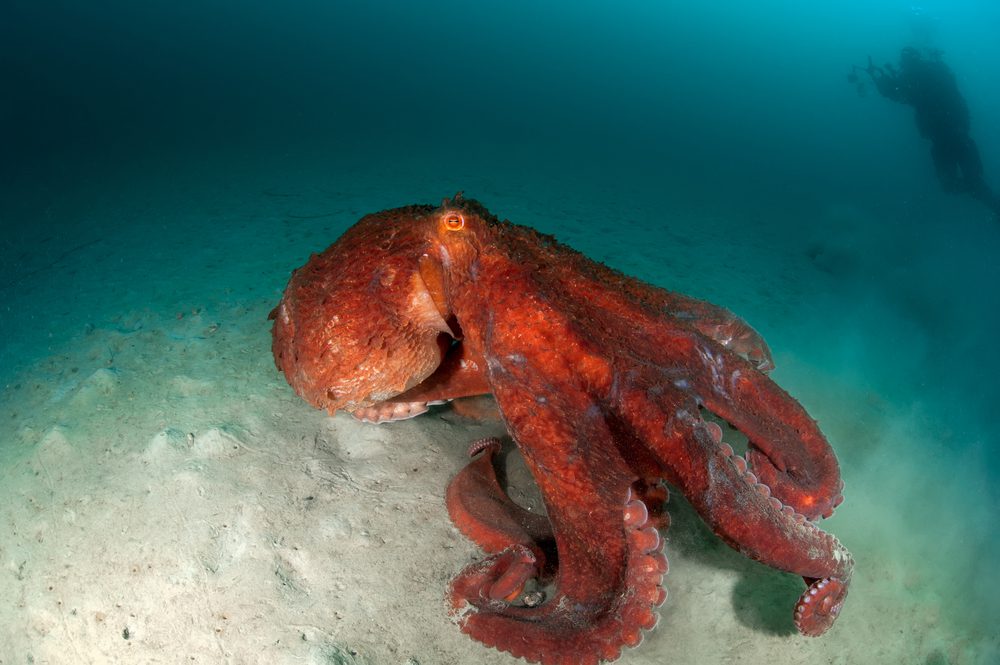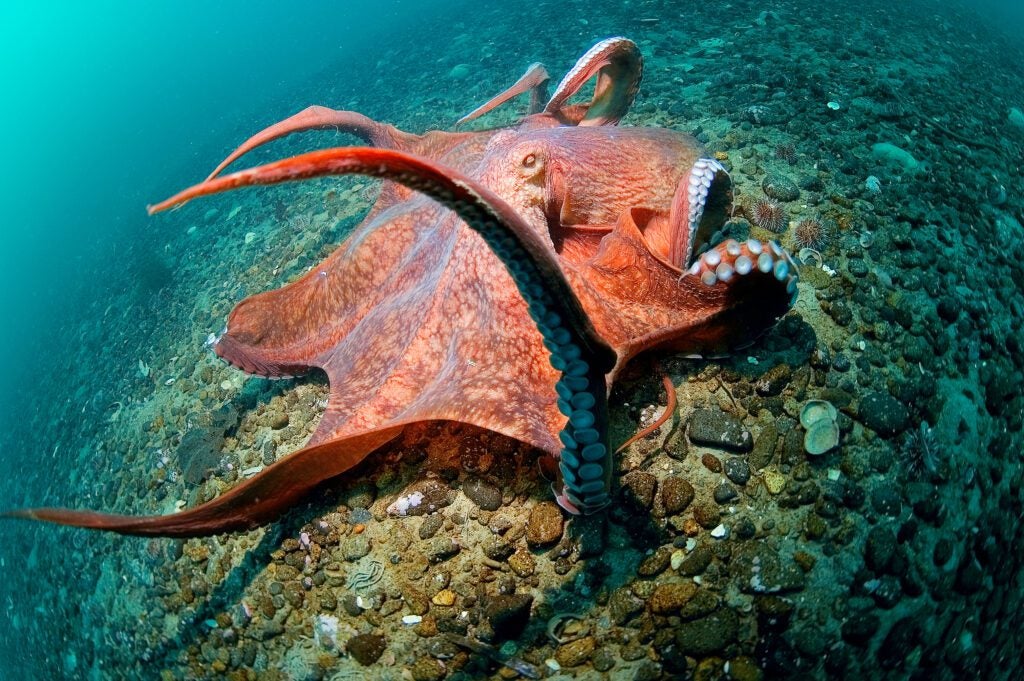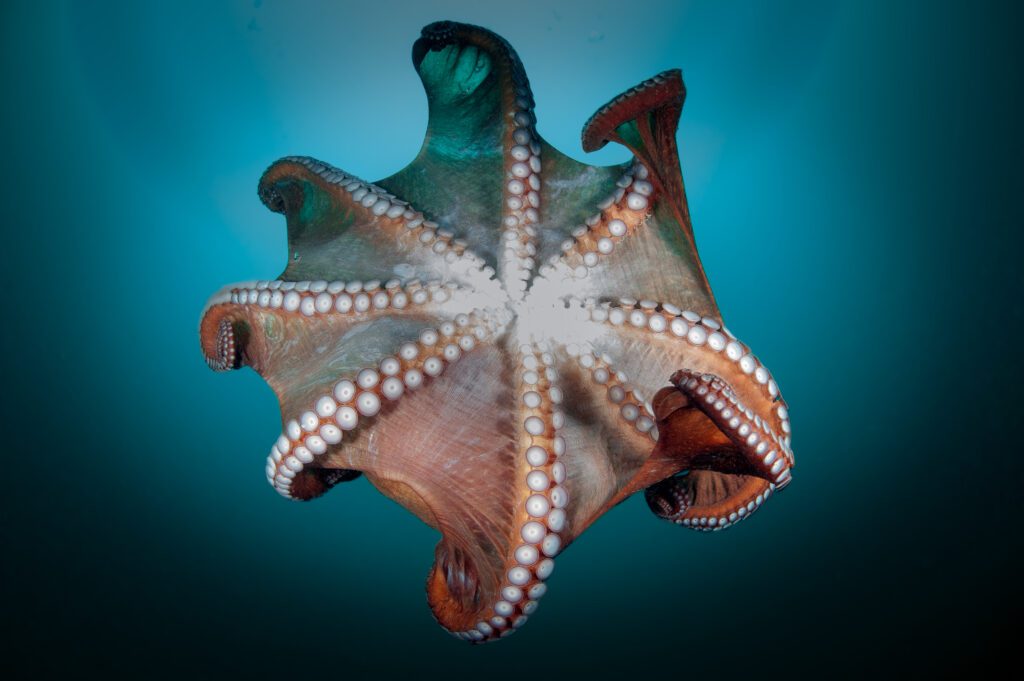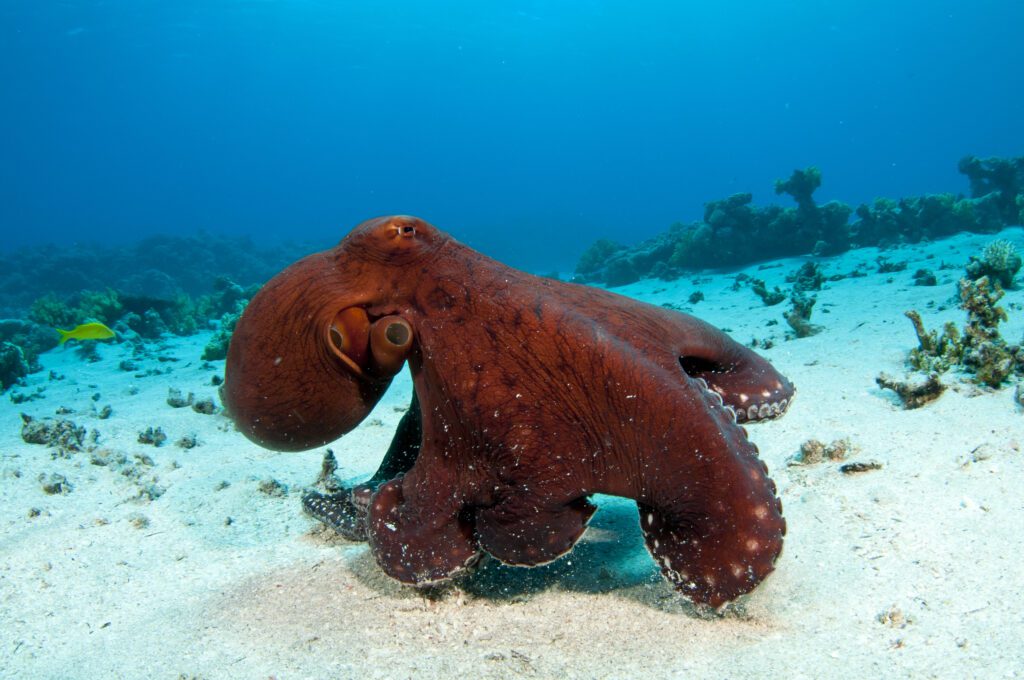November 3, 2022
What has eight arms and a big brain? Breaking down octopus intelligence.
Estimated reading time: 0 minutes

What has eight arms, an intelligent brain and calls Canada’s waters home? If you guessed octopus, you are right! There are nine species of octopus that call the Atlantic and Pacific Coast of Canada their home. Depending on the species, octopus tend to live among the rocky intertidal zone, but some can be found in waters over 100 metres deep. These creatures tend to be shy and difficult to find, hiding in rocky dens they call home, which makes studying them hard.
Octopus are pretty well-known animals but there may be more to them than what meets the eye. Octopus belong to a group known as the cephalopods, which is Greek for ‘head-foot.’ Their head to body ratio and brain size is like that of other intelligent species, like mammals. The central nervous system of an octopus even has as many neurons as a dog! But instead of these five hundred million neurons being all packed into the brain, they are spread around the octopus’ body. The central brain of an octopus contains 10 per cent of their neurons, their optic lobes have 30 per cent and the remaining 60 per cent of the neurons are found in their tentacles!

Now what do all these neurons and brain cells mean? What are octopus capable of? These creatures have proven their intelligence in many ways. In research experiments they have solved complex puzzles and mazes. In aquarium settings, octopus have learned how to escape their tanks to access fish in other tanks, even opening doors and levers along the way.
Utilizing tools is a rare sight to see in the animal kingdom, especially in non-mammals. Usually, this behavior is associated with sea otters or dolphins. Despite this, the octopus has learned how to use tools for a range of tasks. They have been seen creating rock dens on the ocean floor, putting different pieces of rock, shells, broken glass and bottle caps to work.

Now intelligence goes beyond obtaining information and processing it. It also includes storing information in long term memory and applying it when needed. Octopus do just that. Their long-term memory shows that they store the information they have obtained through trial-and-error learning. In one research study, an octopus came to dislike a researcher that was working with it. Each time this researcher would walk by, the octopus would squirt water out of its tank at them. In other research, octopuses have learned to engage with certain coloured and shaped objects. They then store this information and when confronted with the objects over extended periods of time, they remember which objects to engage with again.
Octopus might not have bones, but it doesn’t mean they don’t have brains. These incredible animals have proven their intelligence through problem solving and retention. There is still so much to be discovered about these elusive creatures but for now, it is safe to assume we have been underestimating their intelligence for a long time.
Learn more about octopus in Canada on our Marine Life Encyclopedia >>

MOST RECENT
June 19, 2025
June 2, 2025
OPINION: From Crisis to Opportunity: Rebuilding Canada’s Fisheries for Climate and Economic Security

